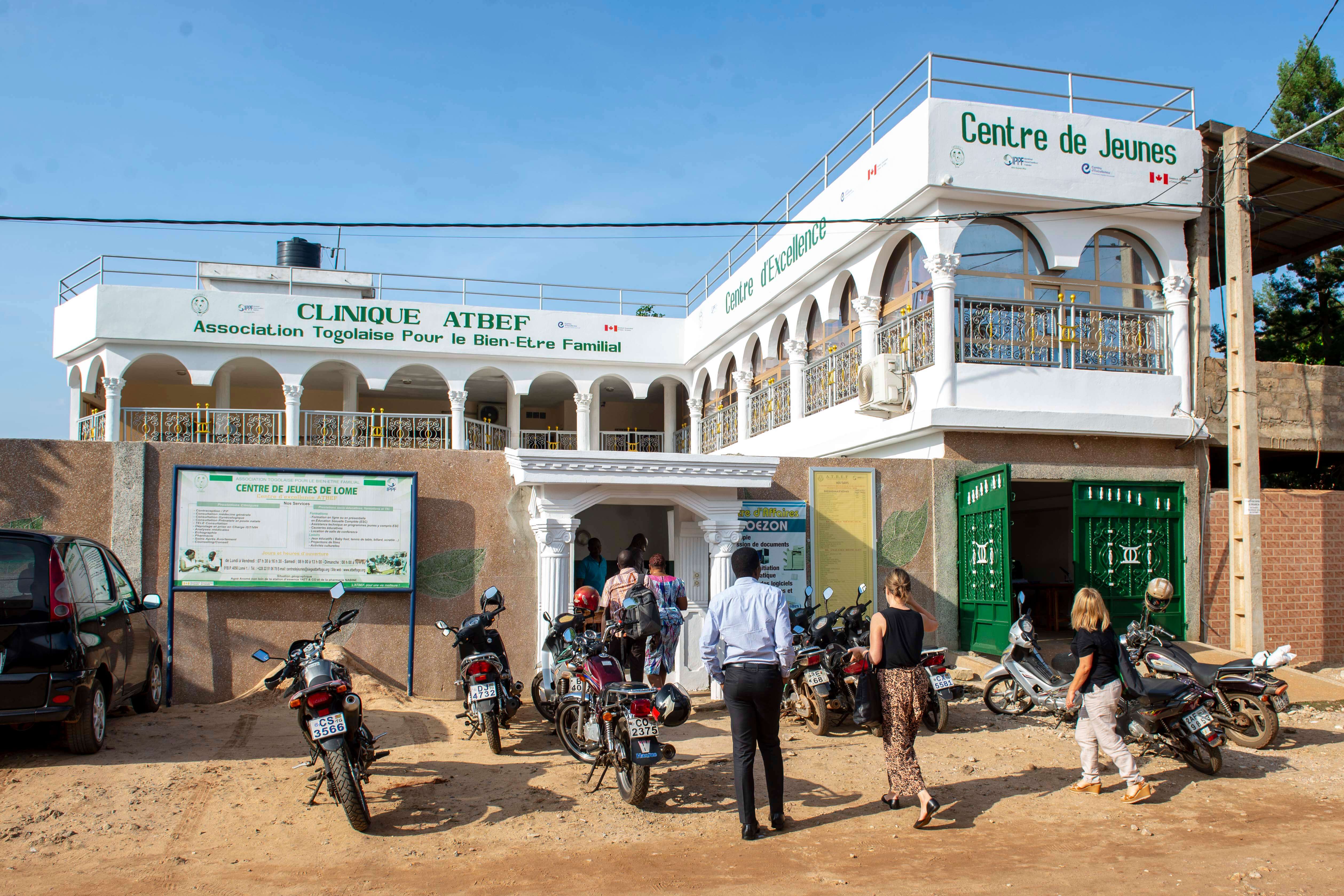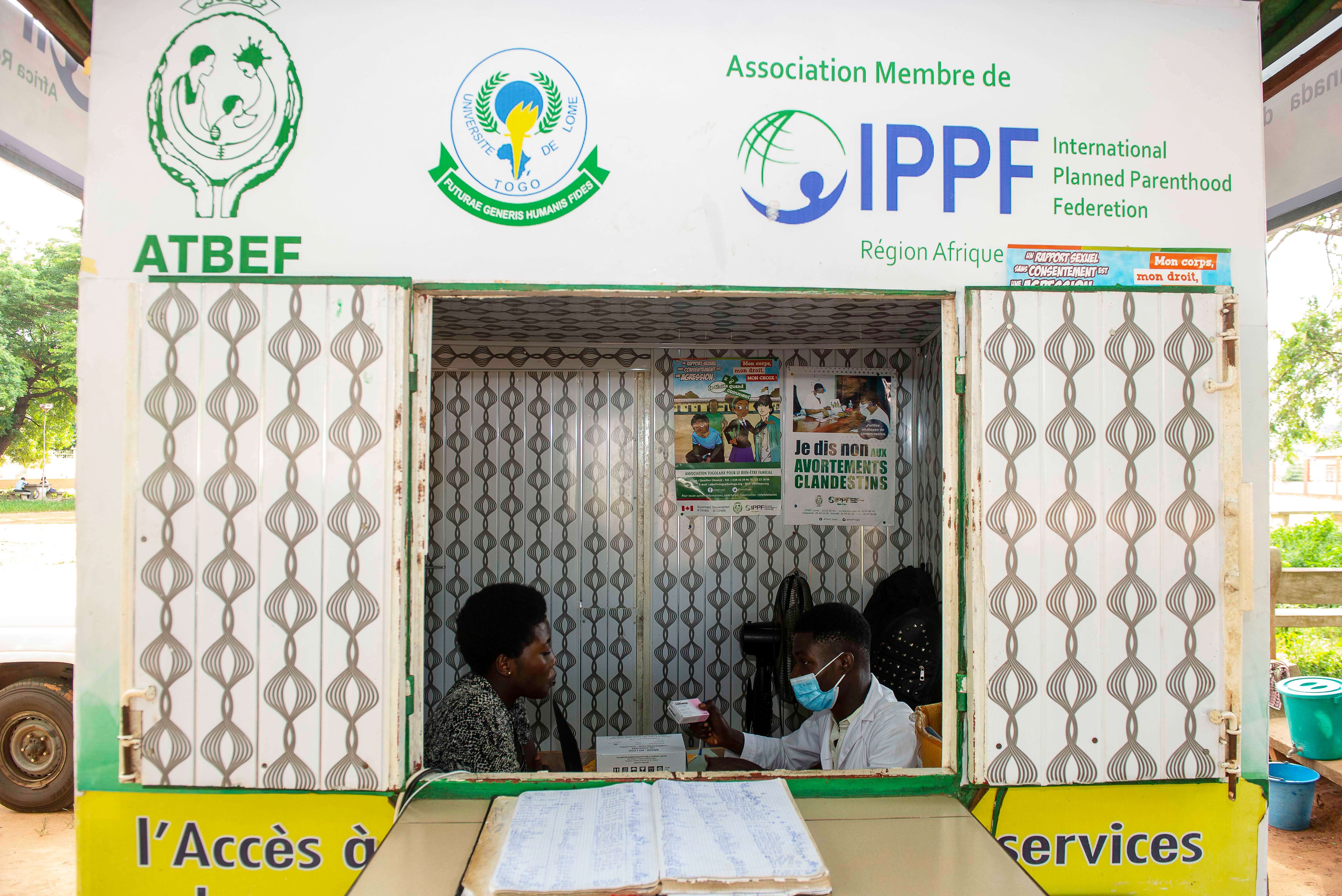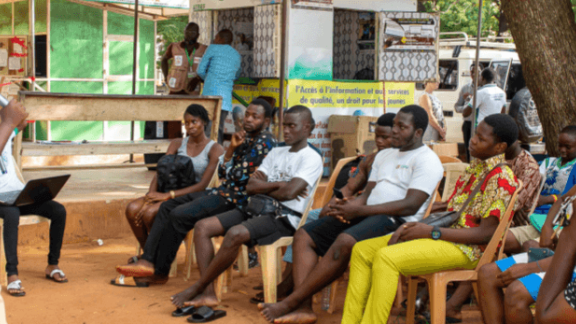From the Government of Canada’s website
Growing up in Sokodé, a city in central Togo, Hayathe Ayeva dreamed of a career as a health-care professional. She studied hard in school and saw similar drive and lots of potential in the girls around her. But by the age of 12, some of her friends were becoming sexually active. With no access to sexuality education teaching them about consent and bodily autonomy or birth control in the conservative community, the doors to whatever future they had hoped for quickly closed.
“I really couldn’t stand to see my friends, who were brilliant at school and surely promised a bright future, suddenly drop out because of early marriage, pregnancy or gender-based violence,” Ayeva recalls. “This is something that saddened and revolted me because I believed that, together, we should go on to higher education and become financially independent. I decided to fully commit myself to the defence of human rights, especially reproductive-health rights.”

Hayathe Ayeva, a volunteer at ATBEF, says sexuality education reduces taboos and encourages people to be “more willing to talk about sexuality.” Credit: ATBEF
Ayeva was motivated to join the Association Togolaise Pour le Bien-Être Familial [Togolese association for family welfare] (ATBEF), a non-governmental organization in the field of sexual and reproductive health and rights that is a member association of the International Planned Parenthood Federation (IPPF). She began volunteering as a peer educator, helping young people learn about everything from how to protect themselves from sexually transmitted infections to the proper use of contraceptives.
Today, Ayeva, 23, is the national president of ATBEF’s Youth Action Movement. Through a project supported by Global Affairs Canada, the organization has established kiosks that offer contraceptive services and other initiatives adapted to the needs of young people at 2 public universities in Togo. There are also mobile clinics, a smart phone app called InfoAdoJeune [InfoTeenYouth] that provides teleconsultation services and an e-learning platform with free online comprehensive sexuality education courses for youth.

The project supports a youth centre that includes meeting and training spaces and a health clinic, as well as games in the front garden that help to draw in young people. Credit: ATBEF
Such interventions are critical given Togo’s young population, she says. In the West African country of more than 7.2 million people, some 60% are under 25 years old, while 42% are under 15. And 1 in 6 girls give birth before the age of 18.
Ayeva says there are many obstacles to improving sexual understanding among the country’s young people. These include sexual taboos, the long distances required to get to youth-friendly health services, and young peoples’ limited access to public health centres and to sexuality information and contraceptive care.
The efforts supported by Canada are making a difference by building the capacity of youth advisers who deliver clinical services, the young volunteer says. ATBEF hosts and runs various activities, ensuring that young people get access to “the right information” confidentially, she says. The numbers are significant. In 2021, despite the COVID-19 crisis, the 2 university kiosks provided 28,154 educational and health services to Togolese youths. In 2022, ATBEF provided 172,538 services through the Global Affairs Canada-supported program.

In the ATBEF kiosk at the University of Lomé, trained staff members and volunteers provide contraceptives and referrals as needed. Credit: ATBEF
Ayeva, who lives in Togo’s capital of Lomé and became a member of the global board of trustees of the IPPF last November, is ever mindful of her young friends who had to stop their studies because of early marriages and pregnancies. “I’m constantly challenged by my conscience,” she says. “I really want to make a change among the young population.”
She’s proud to be a young leader and role model in her community, calling herself a “lifelong activist in the name of sexual education.” She feels that through the activities of ATBEF, with the assistance of partners such as Canada, “taboos are a little bit reduced today and people are more willing to talk about sexuality.”
She is pursuing her goal of becoming a doctor of public health responsible for a large social organization. Last year, Ayeva graduated with a degree in pharmaceutical science, and she plans to pursue a master’s in public health next. She would ultimately like to work in a field such as reproductive science and get a position as a specialist with the United Nations.

A nurse at a mobile clinic provides family-planning counselling and contraceptive pills to a woman. Credit: ATBEF
Ayeva writes poetry and recently composed a poem for an IPPF event in Abidjan, Côte d'Ivoire. Titled “J’ai peur” [“I am afraid”], it expresses her concerns about rising rates of teenage pregnancy, gender-based violence and discrimination.
While her poem paints a bleak picture of society, it notes that [translation] “destiny lies in the hands of its youth” and emphasizes the importance of activism. “Beyond my fear, I remain confident,/…I see a glimmer of hope on the horizon,” Ayeva writes. “Together we can change the world.”
when
country
Benin
region
Africa
Related Member Association
Association Béninoise pour la Promotion de la Famille









